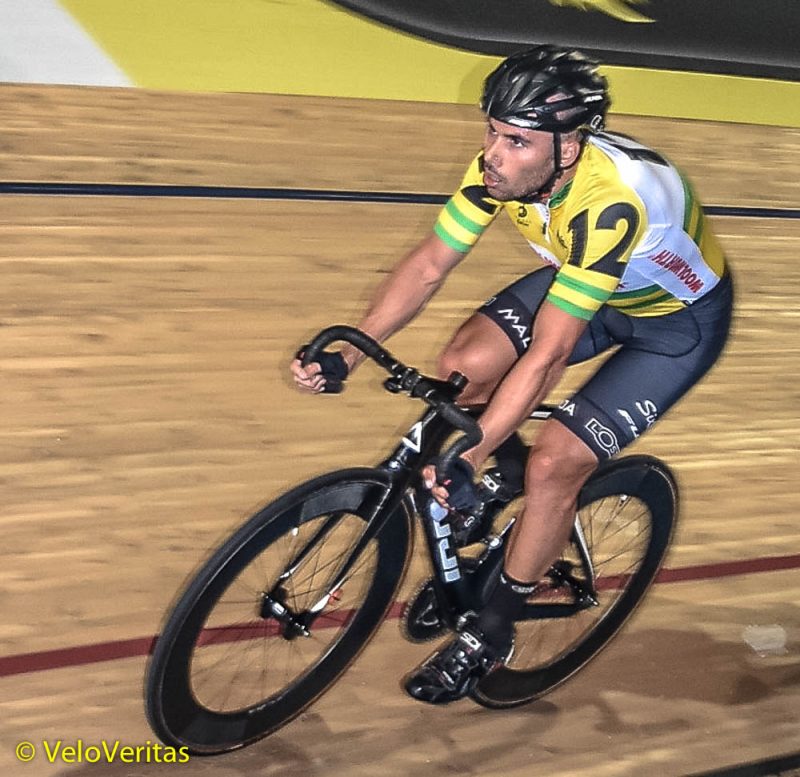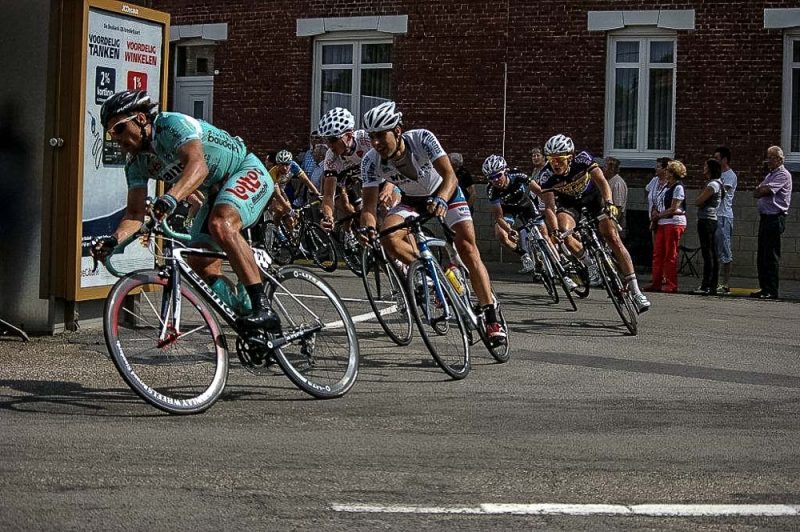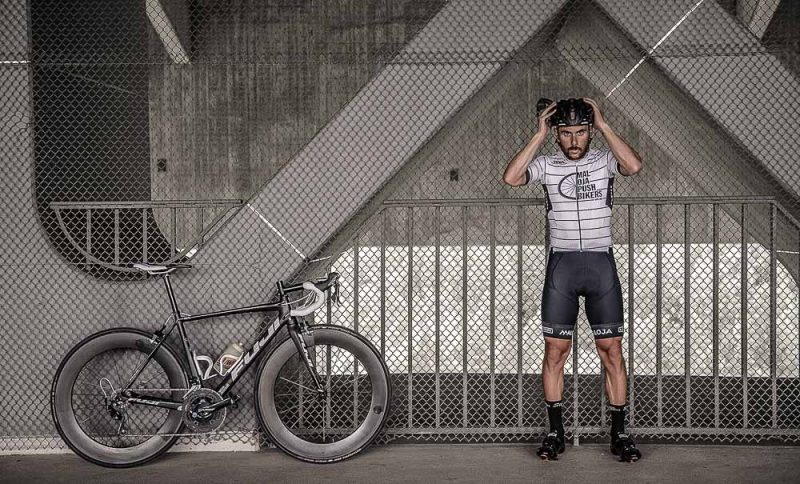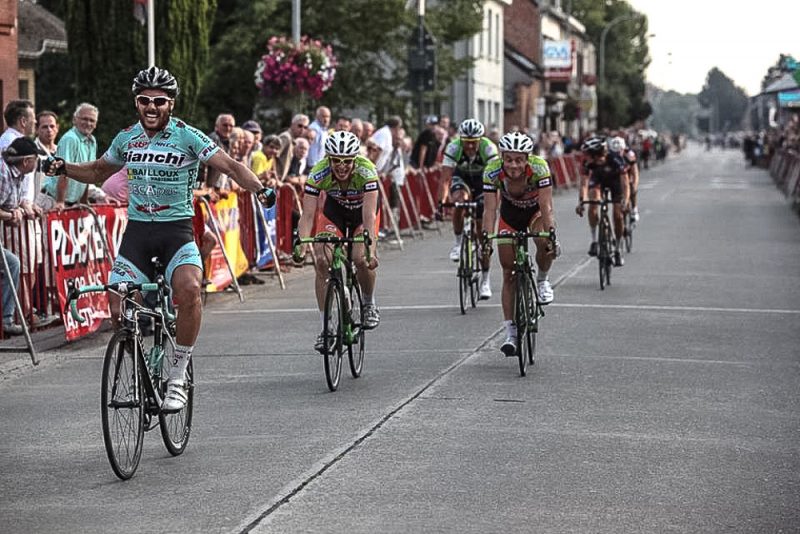I did the last day of the Berlin Six Day, this year and one of the riders I was looking after was Australian Stephen Hall, son of former British Madison Champion, Murray Hall.
It transpires Stephen is no mean wordsmith; we thought you might like to read his “Rules for Racing in Belgium” – whilst they’re from an Aussie perspective so much of it is rock solid advice irrespective of your nationality, based on experience.

Any one with an interest in Flatlands racing – or thinking of making the trip across the North Sea to cross swords with the locals would do well to read Stephen’s advice.
* * *
Rule #1: Keep it short
Too often we are tempted to lock ourselves in to a six or seven month season with no preconceived idea or perception of what the experience will actually entail.
Racing three/four times a week?
Beauty, what’s not to like!?
What many forget to mention however, is that for most 18-21-year-old bike riders, this will probably be the first actual glimpse into the world of how to survive on your own.
A crash course into the big bad world of adulthood and independence without your parents beside you to hold your hand.
More than once in my career I’ve come across riders who couldn’t cook, navigate a train station or wash their own clothes, yet have just signed on to spend six months overseas.
You begin to learn very quickly that if you leave your dirty kit behind the bathroom door that it will still in fact be there the following morning.
Miraculously it did not wash itself and appear folded at the foot of your bed.

Limit your first trip to four to six weeks. It may seem like a relatively short amount of time, but in the grand scheme it is more than enough to get a true reflection of what living abroad entails.
This is especially important if you’re travelling alone or with only a handful of training buddies.
On an average of two/three races a week it is possible to race four/six weeks (aim for a total of 10-12 races).
Beyond that point the body will begin to fatigue and you’ll either need to take an easier week to recover or risk burying yourself into the ground.
The locals will most certainly encourage you to train more and to race less.
Everyone is an expert. From the mechanic at the bike shop to the guy riding a Colnago down the canal without a helmet.
Bollocks.
You’ve traveled half way around the world to race, you can train back at home.
* * *
Rule #2: Recover.
In Belgium less is more.
Aim for a minimum of two/three days between races.
For most young foreigners just making it to the finish with the bunch is a challenge, focus on that.
Racing consecutive days is unnecessary and your confidence will take a hit if you DNF.
Back to back kermis races is not like a stage race.

For the most part you’re racing fresh legs while you carry fatigue from the day before.
Remember it’s always better to have eight good races than 15 mediocre ones.
Once you’re more experienced, you can experiment with racing doubles and shorter rest between races but I’d avoid it for your first visit.
Instead focus on maximizing your recovery and competing fresh for the races you do start.
* * *
Rule #3: Set goals
Both your experience as a bike rider and level of preparation before getting on the plane, will strongly determine how quickly you are able to adjust to the style and speed of the racing.
Presuming most readers are of sound elite or A grade quality at home, on the first trip abroad I’d advise following the 4:3:2 race method.
The most important factor is that you always make it to the finish, so for the first set of races (4) focus entirely on just surviving within the bunch.
Don’t get excited and follow moves, chase breaks or god forbid attack.
It’s better to get to the finish feeling like you had more in the tank than marching down the road at kilometre O, chewing stem for 20 minutes then watching the remaining 90km from the café on the corner – Yes it happens.
To be frank, most foreign riders get their ass kicked in the first two weeks.
Respect the competition. Belgians are arguably the strongest cyclists in the world and you’re playing in their backyard.
Provided you remained disciplined for the first set of races, you will feel yourself gradually becoming stronger.
Once the initial step is completed, the next progression is to assert yourself more within the race (3).
Become more confident moving around the peloton, keep an eye on what is moving up the road, who the strong riders are and assess how the race is won.
Refrain from attacking but begin to follow moves and surround yourself with quality riders.
Don’t yell or argue.
Respect is everything in cycling – the last thing you want is riders racing against you.
Australians and New Zealanders are renowned all over the world for being strong bike riders and quick finishers so don’t take offence if you’re targeted by the locals as the rider who should commit the most energy to the break.
Keep your mouth shut and your accent trapped inside.
Aggressive riding, while common in France and Italy, is frowned upon in Belgium, don’t take the inside run in corners or move erratically within the bunch.
More than half the field have full time jobs and never risk falling.
The final step or the (2) phase of progression is to make the race.
From this point onwards (race ~7-8) focus on riding a smart tactical race and getting maximum reward for big efforts.
Don’t waste energy or try and follow every attack in the first hour, follow the dangerous riders and only commit fully to promising breaks.
If you happen to find yourself in contention within the final laps be wary, the attacks are coming.
Bunch sprints aren’t common in Belgium and even in a small group of six or so riders, the cohesion will quickly end in sight of the final.

It’s far more likely to finish in one’s and two’s than in a gallop.
Stay focused and don’t drop your head if you miss the winning move, Belgians always race to the finish regardless of what group they’re in.
Practice reading these attacks or even have a crack yourself as it is good training for the future might you find yourself contesting the win.
Lastly, team riding is strongly discouraged. Both blocking and sitting on the break are considered taboo.
While unusual to us, it’s not uncommon to see riders chasing their own team mates down the road.
For many locals, kermises are seen as training races with the finishing placings deciding who will be in favour of the managers for the more important Interclub opportunities.
* * *
We hope you liked Stephen’s advice as much as we did – more will follow.
Check out Stephen’s Facebook page and follow him on Instagram.



